National costumes show Switzerland’s diversity
A traditional costume worn abroad is more than just clothing, it allows the wearer to feel closer to their home country. The "Foreign Colours" photo collection gives a flavour of the huge diversity of nationalities living in Switzerland, especially in canton Ticino.
Foreigners make up around 28% of the population in the southern Italian-speaking canton. But the photographer Flavia Leuenberger CeppiExternal link wanted to go further than the statistics and document the huge diversity behind the “foreigner” label.
Her new series of portraits “Foreign Colours” (Colori stranieri) not only shows the most commonly found foreign nations in Switzerland (Italians, Portuguese, Germans and Serbians), but also focuses on minorities. This includes communities from Nepal, Iraq and Mongolia, who have, despite sometimes finding it hard, settled in Ticino.
New country, new life
“Adapting to a new world is not always easy. Some people have felt the need to return to their countries for a while; others have tried to manage their homesickness through activities like joining foreign communities in Ticino, cooking their traditional food for others, donating to humanitarian causes, dance classes or the wearing of traditional costumes from their homelands,” the photographer explained.
What they have in common, she added, is the use of the phase “in our country….” which seems to be a typical expression of those following a new life away from home.
The traditional clothing shown in the photographs could help increase understanding of the cultural diversity in Ticino, the photographer said. She took the images near their homes in Ticino, as she says this “helps the person looking at the portraits to understand the personal and cultural identities that are often viewed as being distant”.
For the people in the photos, however, wearing traditional attire is “an opportunity to feel closer to their homelands, which goes beyond the simple gesture of wearing something”.
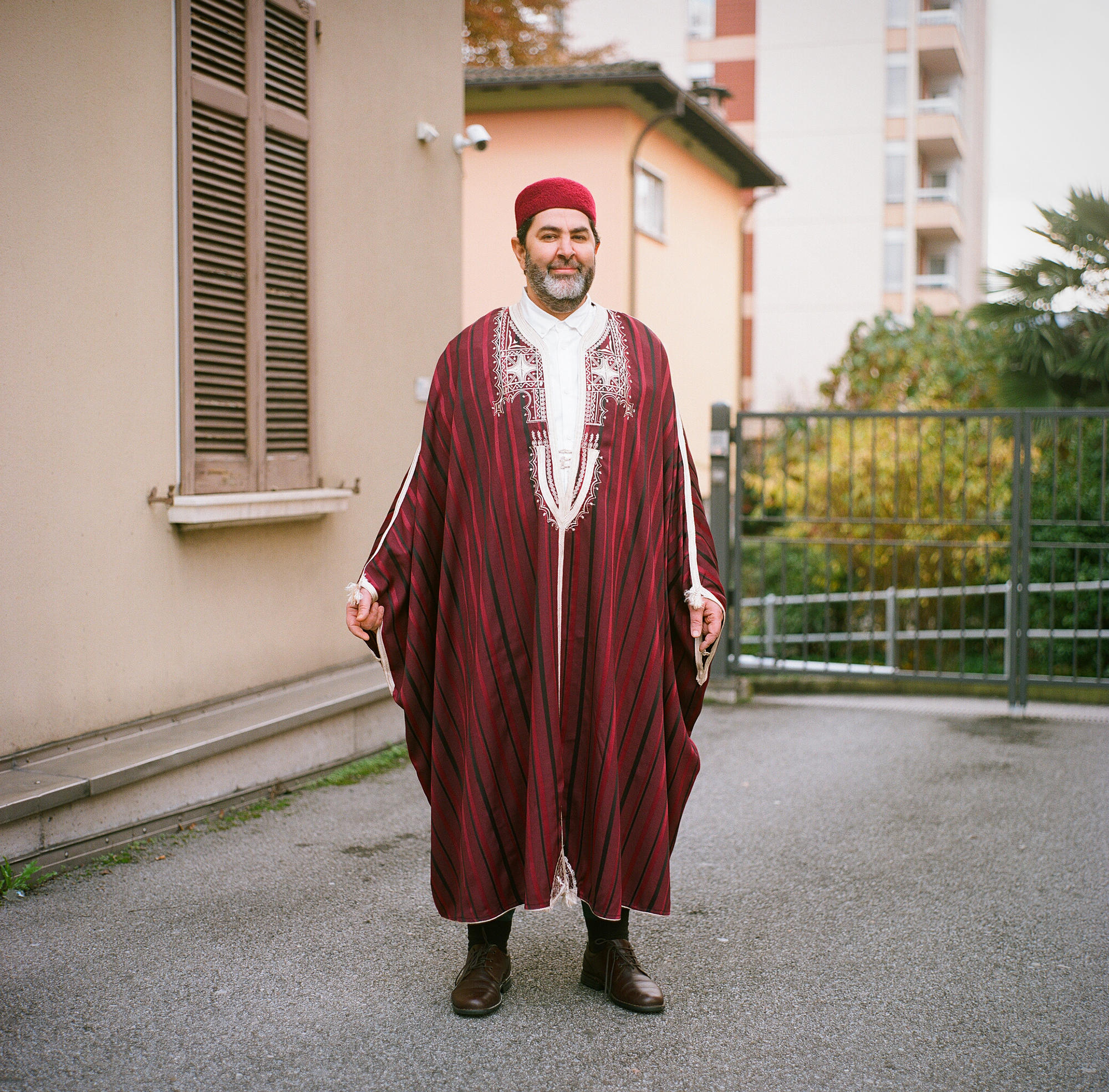




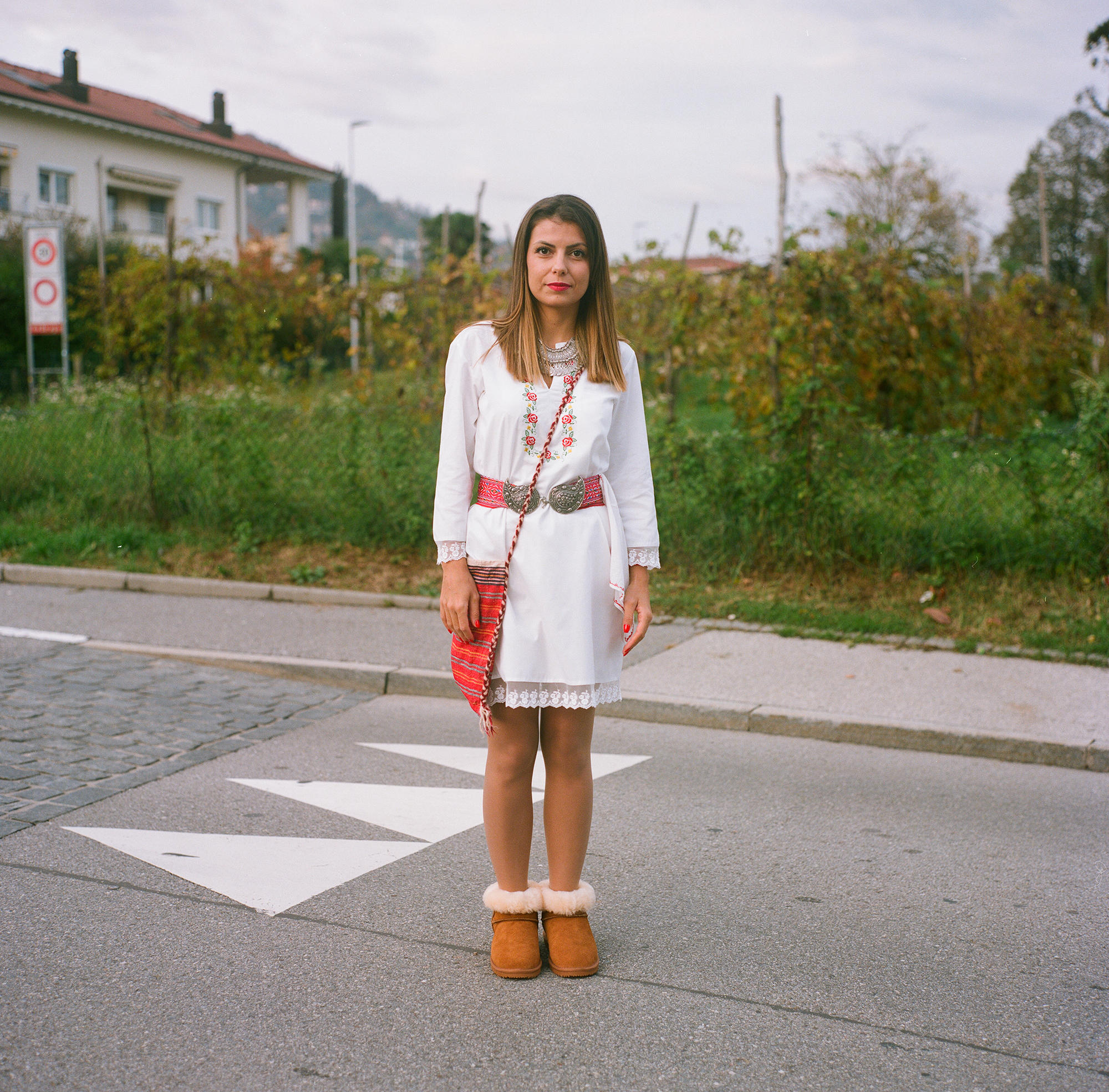


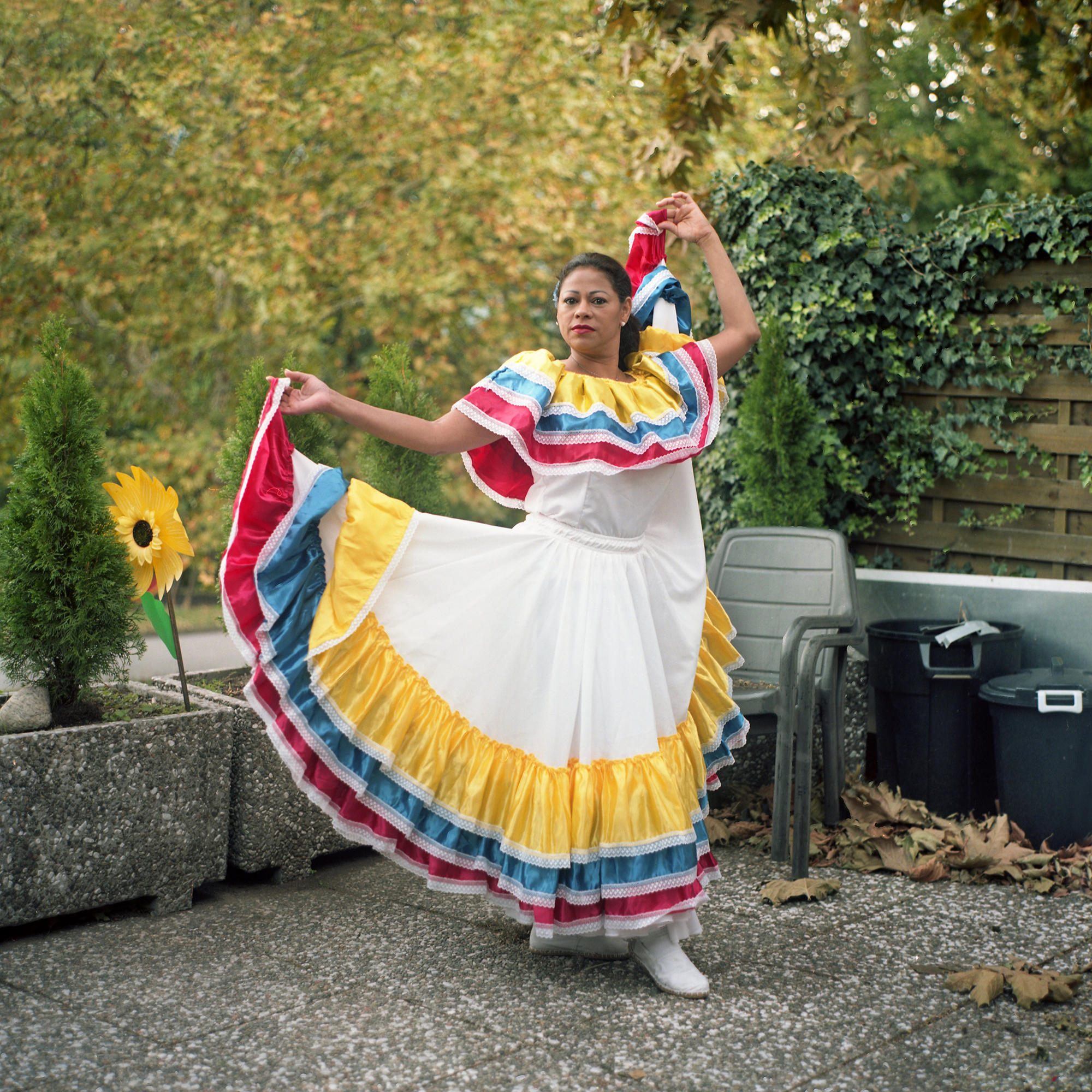
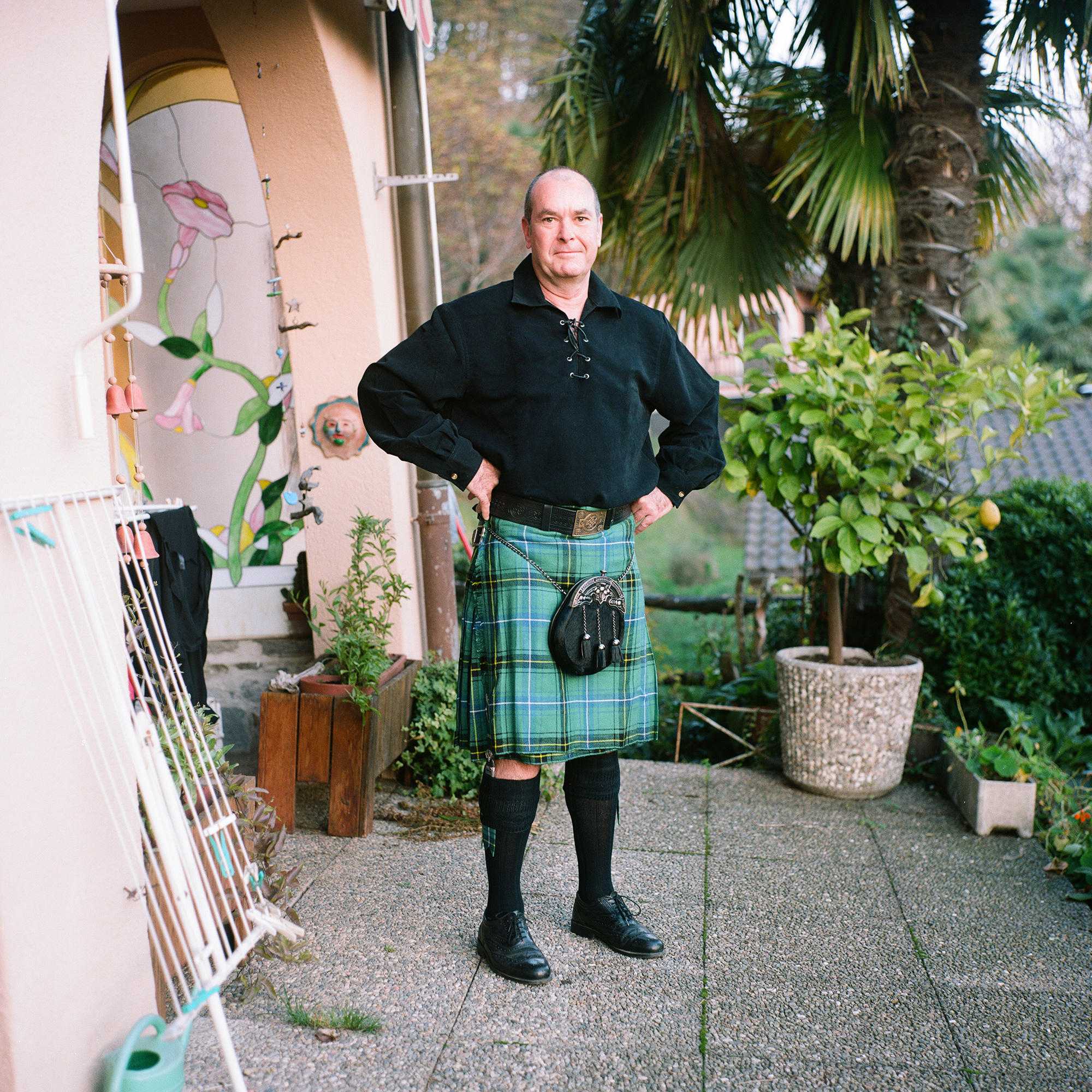
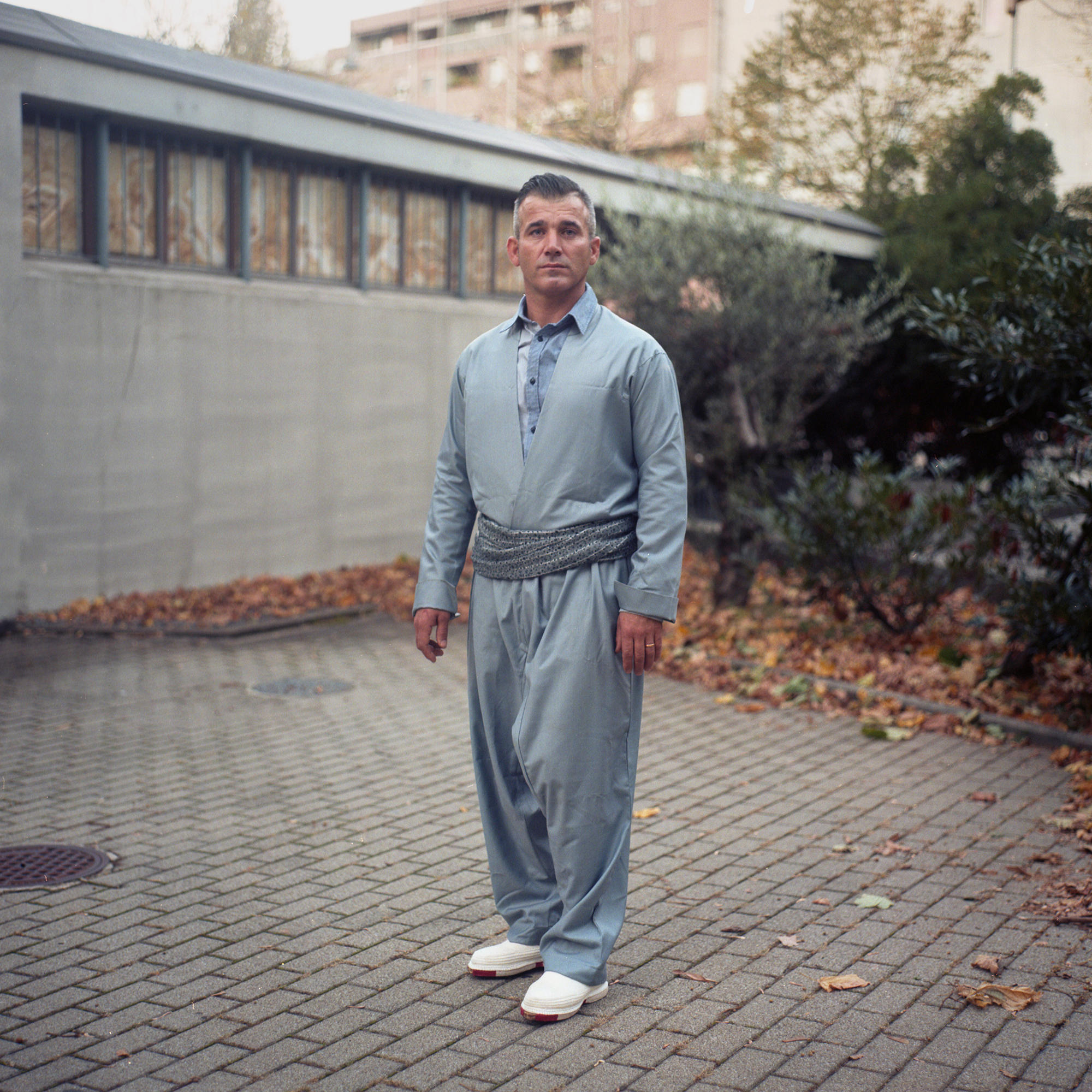
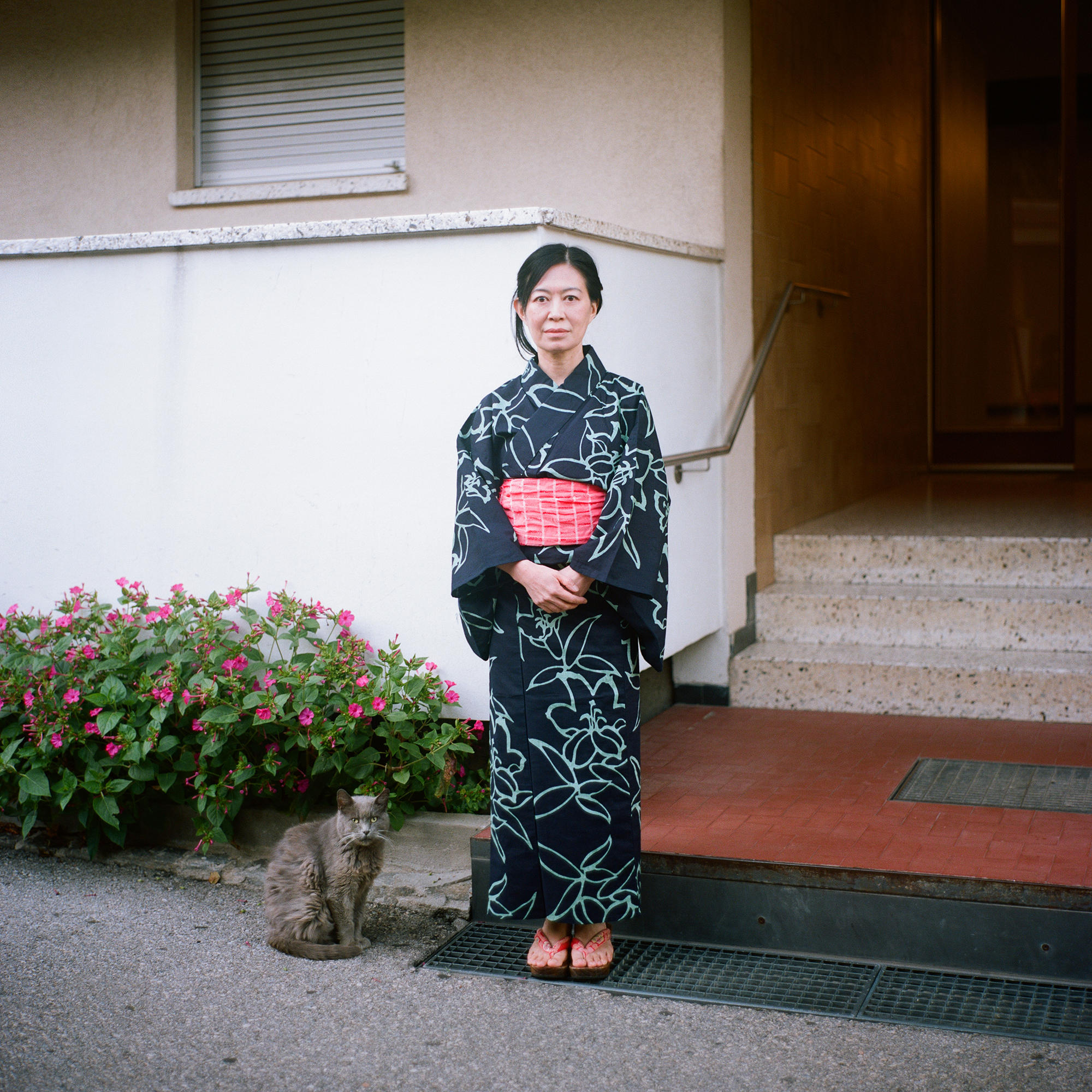

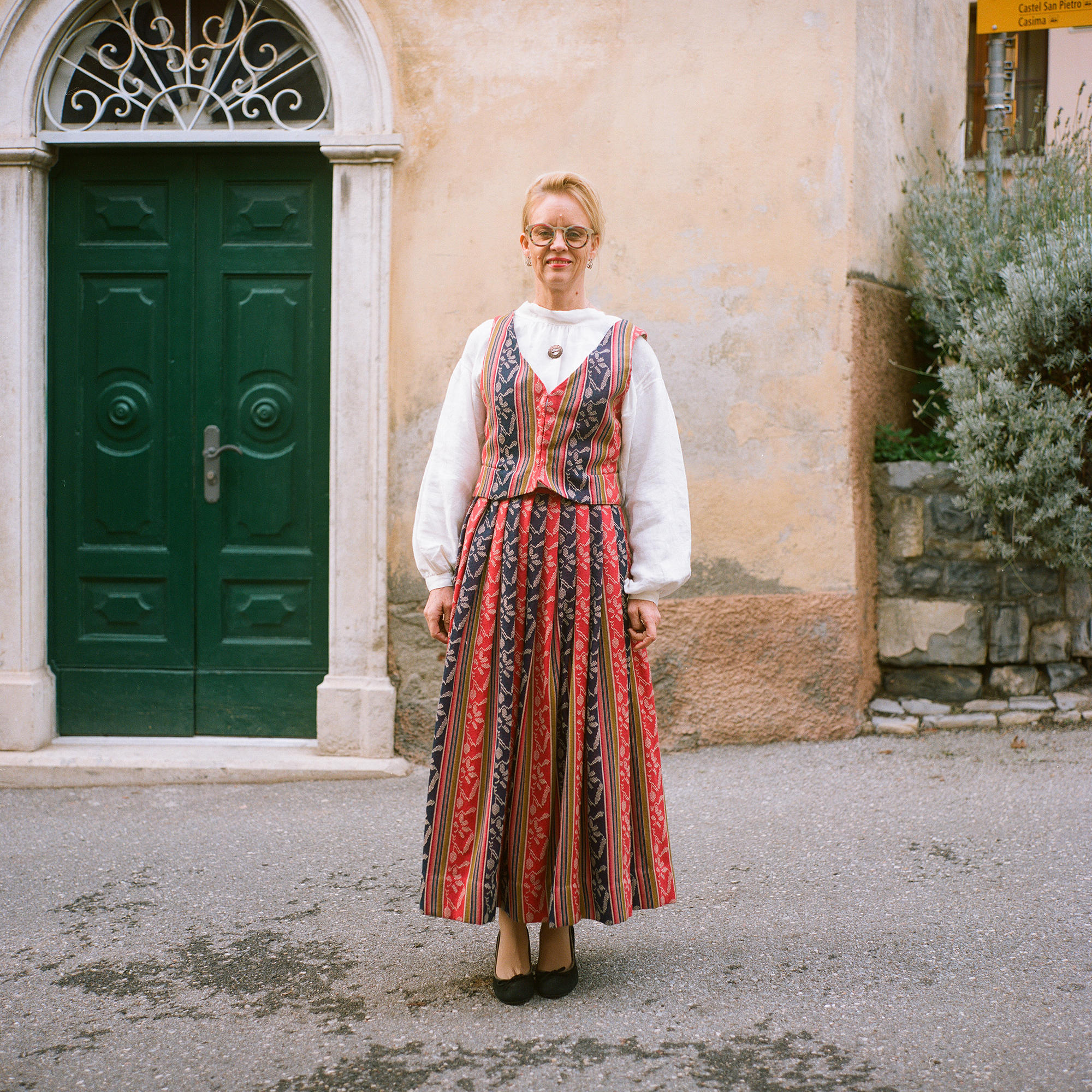
You can find an overview of ongoing debates with our journalists here . Please join us!
If you want to start a conversation about a topic raised in this article or want to report factual errors, email us at english@swissinfo.ch.